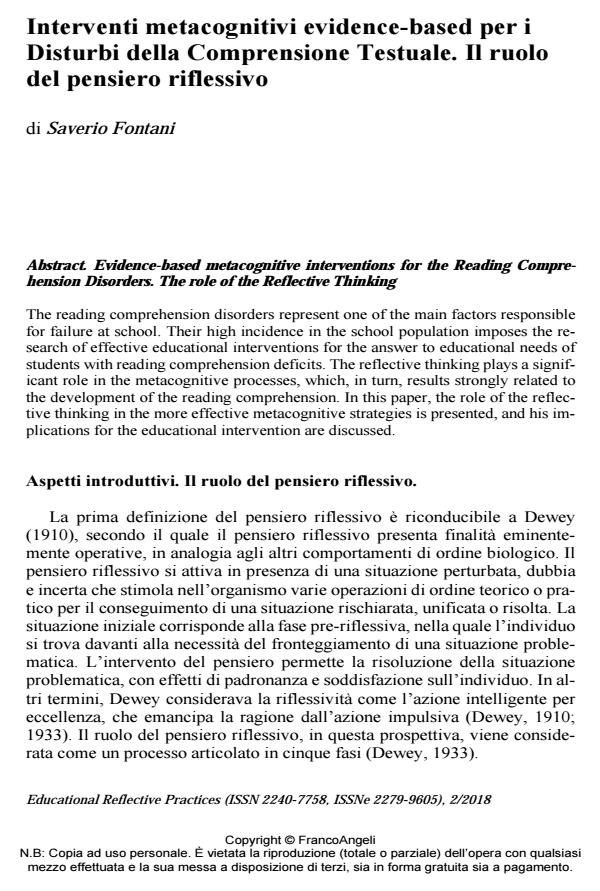Interventi metacognitivi evidence-based per i Disturbi della Comprensione Testuale. Il ruolo del pensiero riflessivo
Titolo Rivista EDUCATIONAL REFLECTIVE PRACTICES
Autori/Curatori Saverio Fontani
Anno di pubblicazione 2019 Fascicolo 2018/2
Lingua Italiano Numero pagine 14 P. 156-169 Dimensione file 206 KB
DOI 10.3280/ERP2018-002011
Il DOI è il codice a barre della proprietà intellettuale: per saperne di più
clicca qui
Qui sotto puoi vedere in anteprima la prima pagina di questo articolo.
Se questo articolo ti interessa, lo puoi acquistare (e scaricare in formato pdf) seguendo le facili indicazioni per acquistare il download credit. Acquista Download Credits per scaricare questo Articolo in formato PDF

FrancoAngeli è membro della Publishers International Linking Association, Inc (PILA), associazione indipendente e non profit per facilitare (attraverso i servizi tecnologici implementati da CrossRef.org) l’accesso degli studiosi ai contenuti digitali nelle pubblicazioni professionali e scientifiche.
The reading comprehension disorders represent one of the main factors responsible for failure at school. Their high incidence in the school population imposes the re-search of effective educational interventions for the answer to educational needs of students with reading comprehension deficits. The reflective thinking plays a signif-icant role in the metacognitive processes, which, in turn, results strongly related to the development of the reading comprehension. In this paper, the role of the reflec-tive thinking in the more effective metacognitive strategies is presented, and his implications for the educational intervention are discussed.
Saverio Fontani, Interventi metacognitivi evidence-based per i Disturbi della Comprensione Testuale. Il ruolo del pensiero riflessivo in "EDUCATIONAL REFLECTIVE PRACTICES" 2/2018, pp 156-169, DOI: 10.3280/ERP2018-002011